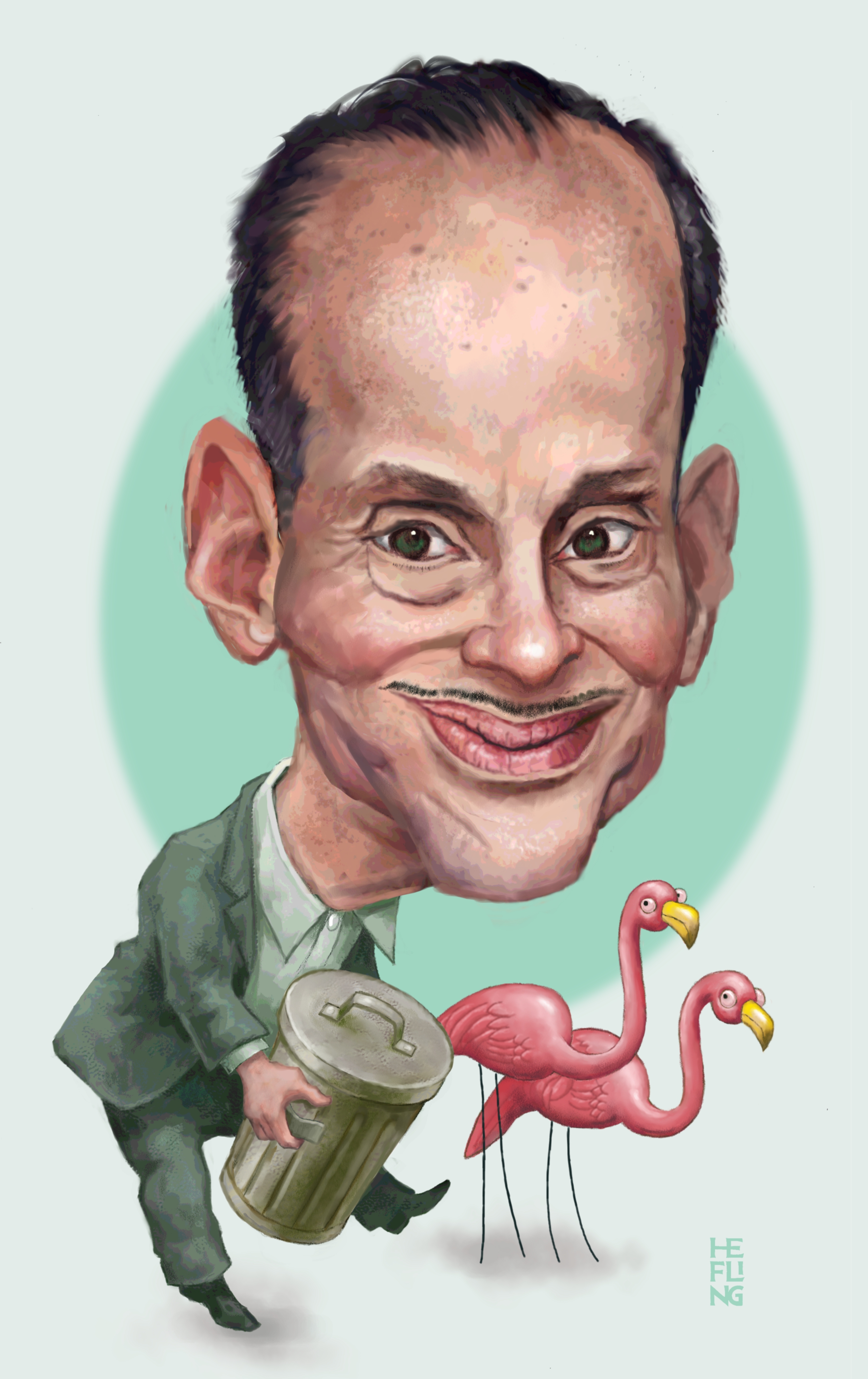 Mr. Know-It-All: The Tarnished Wisdom of a Filth Elder
Mr. Know-It-All: The Tarnished Wisdom of a Filth Elder
by John Waters
Farrar, Straus and Giroux. 370 pages, $27.
JOHN WATERS’ latest book, Mr. Know-It-All, is purportedly an advice book, but really it’s simply more of what Waters fans have come to expect: lively, gossip-fueled, name-dropping storytelling, rolled out by one of America’s greatest living raconteurs.
The book can be broken down into two main parts, the first being a chapter for each of his most recent films, the second his reflections on a variety of themes and ideas. For fans of his filmmaking, part one offers some fascinating insights.
Waters has written about all of these films and published the screenplay for the unmade Pink Flamingos sequel, but here he writes about the phase that followed. He always joked that he was dying to sell out, but no one would buy him. But here we read about how Waters was processed by the Hollywood Dream Factory. After his 1988 comedy Hairspray drew good reviews, Waters found himself in the odd position of being in demand, ultimately working with A-list actors like Johnny Depp, Kathleen Turner, and Melanie Griffith. (He even recalls rejecting a then unknown Brad Pitt, who auditioned for a role.)
 A few chapters are painful to read, as it’s obvious that Waters loves these films but knows that some of his hard-core fans aren’t so wild about them. It’s as though the American mainstream had caught up with much of Waters’ gross-out sensibilities—he notes the breakout success of the Jackass movies—but once he arrived there, they didn’t know quite what to do with him.
A few chapters are painful to read, as it’s obvious that Waters loves these films but knows that some of his hard-core fans aren’t so wild about them. It’s as though the American mainstream had caught up with much of Waters’ gross-out sensibilities—he notes the breakout success of the Jackass movies—but once he arrived there, they didn’t know quite what to do with him.
One can also feel how the shifts in technology and the film industry led to the collapse of the market for the kind of films that Waters made: low-budget but full of crazy ideas. The Internet has led to the collapse of the Miramax-like film distributor business model, while simultaneously making circus-freak porn a mere Google search away—meaning it’s much tougher to shock your way to the top.
Still, Waters doesn’t come off as the least bit bitter and provides observations and anecdotes that are often hilarious. He gets how ludicrous show business is. He once jokingly pitched “Hairspray on Ice” and (of course) someone took him seriously. There is a great poignancy to the book, too: Waters describes the shock and sadness of the sudden death of his muse Divine, who died only two weeks after the premiere of Hairspray, for which the actor had received stellar reviews.
And there’s more meditation on death, perhaps not surprising for a 73-year-old man. In his final chapter, “Grim Reaper,” Waters describes his wishes for his post-life (burial, not cremation, thanks). He also dedicates an entire chapter to his friend Andy Warhol, penning it entirely in Warhol’s stream-of-consciousness style. “Believe me,” he writes of Warhol, “no one will get a fame that original or complicated or lasting again in our lifetime.” Of course, the same could be said of Waters himself.
Reading Mr. Know-It-All feels like catching up with a cherished friend after several years apart, someone whose enthusiasm for all the things he loves—cinema, kink, trash—is entirely contagious. I can’t recommend it highly enough.
Matthew Hays teaches film studies and journalism at Concordia U., Montréal.






